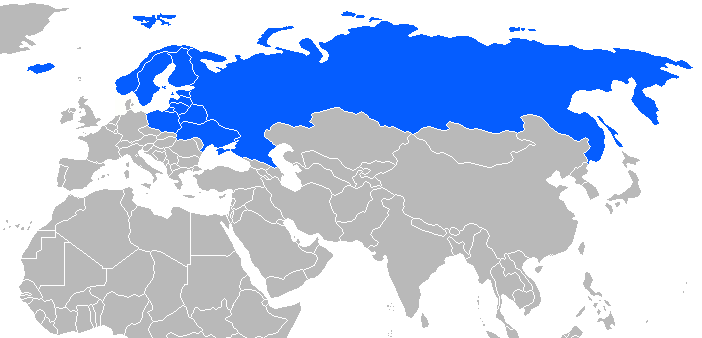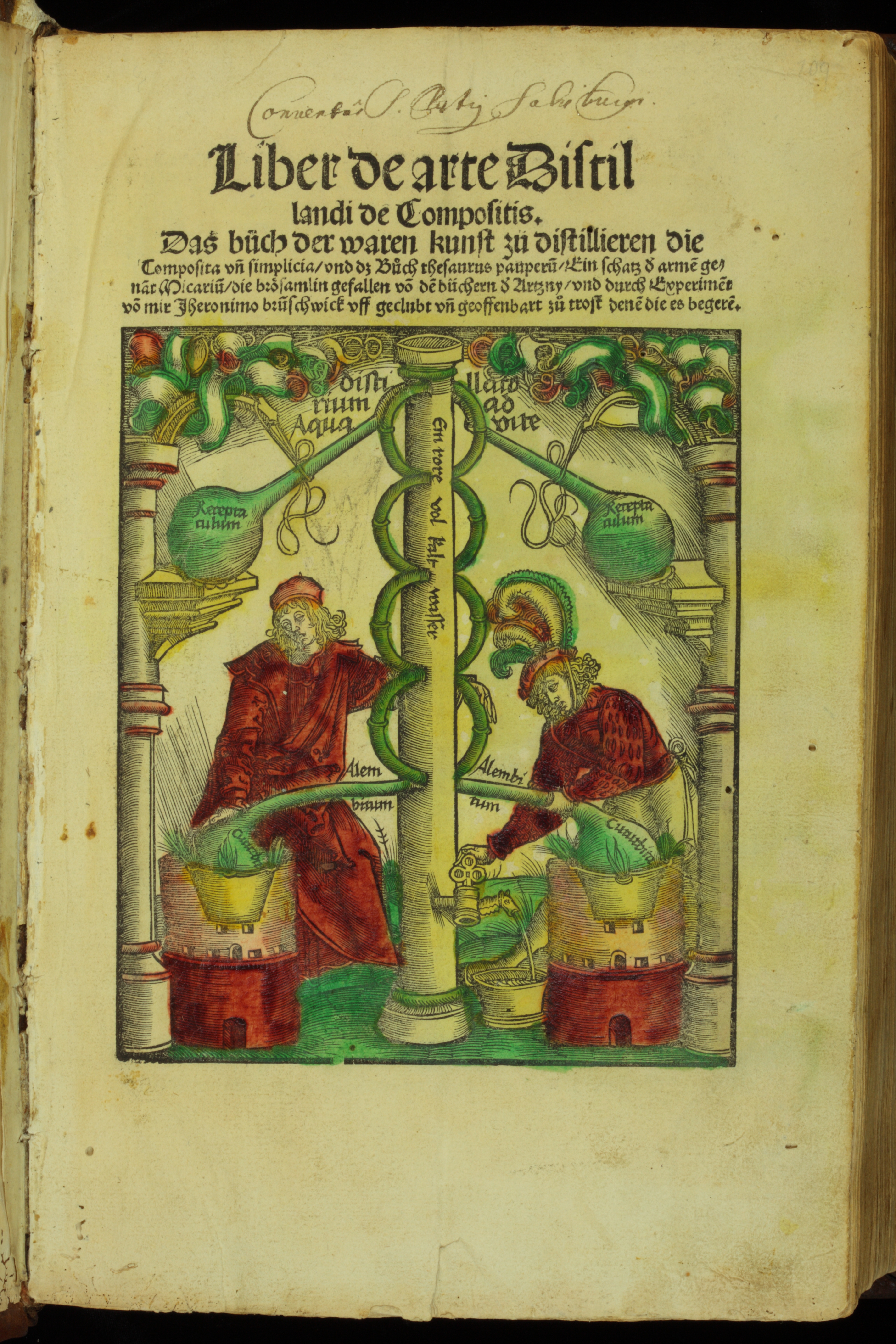|
Propination Laws
Propination laws were a privilege granted to Polish szlachta that gave landowners a monopoly over profits from alcohol consumed by their peasants. Propination is a historical right to distill spirits. In many cases, profits from propination exceeded those from agricultural production or other sources. These laws usually included: * peasants were not allowed to purchase any alcohol not produced in their owner's distillery * alternatively, they could be allowed to brew their own drinks but had to pay a fee according to the amount produced * peasants had to buy at least a given quota of vodka or okovita. Those who didn't comply had the remaining amount dumped in front of their houses and had to pay the costs. These laws first appeared in the 16th and were widespread by the 17th century. They lasted until 1845 (Prussian partition), 1889 (Galicia) and 1898 ( Russian Partition). Propination was the main cause for massive alcoholism in Poland; also, because taverns in rural regio ... [...More Info...] [...Related Items...] OR: [Wikipedia] [Google] [Baidu] |
Szlachta
The ''szlachta'' (Polish: endonym, Lithuanian: šlėkta) were the noble estate of the realm in the Kingdom of Poland, the Grand Duchy of Lithuania, and the Polish–Lithuanian Commonwealth who, as a class, had the dominating position in the state, exercising extensive political rights and power. Szlachta as a class differed significantly from the feudal nobility of Western Europe. The estate was officially abolished in 1921 by the March Constitution."Szlachta. Szlachta w Polsce" ''Encyklopedia PWN'' The origins of the ''szlachta'' are obscure and the subject of several theories. Traditionally, its members owned land (allods), [...More Info...] [...Related Items...] OR: [Wikipedia] [Google] [Baidu] |
Vodka
Vodka ( pl, wódka , russian: водка , sv, vodka ) is a clear distilled alcoholic beverage. Different varieties originated in Poland, Russia, and Sweden. Vodka is composed mainly of water and ethanol but sometimes with traces of impurities and flavourings. Traditionally, it is made by distilling liquid from fermented cereal grains, and potatoes since introduced in Europe in the 1700's. Some modern brands use fruits, honey, or maple sap as the base. Since the 1890s, standard vodkas have been 40% alcohol by volume (ABV) (80 U.S. proof). The European Union has established a minimum alcohol content of 37.5% for vodka. Vodka in the United States must have a minimum alcohol content of 40%. Vodka is traditionally drunk "neat" (not mixed with water, ice, or other mixers), and it is often served ''freezer chilled'' in the vodka belt of Belarus, Estonia, Finland, Iceland, Latvia, Lithuania, Norway, Poland, Russia, Sweden, and Ukraine. It is also used in cocktails and mixed dri ... [...More Info...] [...Related Items...] OR: [Wikipedia] [Google] [Baidu] |
Okovita
''Aqua vitae'' (Latin for "water of life") or aqua vita is an archaic name for a concentrated aqueous solution of ethanol. These terms could also be applied to weak ethanol without rectification. Usage was widespread during the Middle Ages and the Renaissance, although its origin is likely much earlier. This Latin term appears in a wide array of dialectical forms throughout all lands and people conquered by ancient Rome. The term is a generic name for all types of distillates, and eventually came to refer specifically to distillates of alcoholic beverages (liquors). ''Aqua vitae'' was typically prepared by distilling wine and in English texts was also called ardent spirits, spirit of wine, or spirits of wine, a name that could be applied to brandy that had been repeatedly distilled. The term was used by the 14th-century alchemist John of Rupescissa, who believed the then newly discovered substance of ethanol to be an imperishable and life-giving "fifth essence" or '' quintess ... [...More Info...] [...Related Items...] OR: [Wikipedia] [Google] [Baidu] |
Prussian Partition
The Prussian Partition ( pl, Zabór pruski), or Prussian Poland, is the former territories of the Polish–Lithuanian Commonwealth acquired during the Partitions of Poland, in the late 18th century by the Kingdom of Prussia. The Prussian acquisition amounted to 141,400 km2 (54,600 sq mi) of land constituting formerly western territory of the Commonwealth. The first partitioning led by imperial Russia with Prussian participation took place in 1772; the second in 1793, and the third in 1795, resulting in Poland's elimination as a state for the next 123 years. History The Kingdom of Prussia acquired Polish territories in all three military partitions. The First Partition The First Partition of Poland in 1772 included the annexation of the formerly Polish Prussia by Frederick II who quickly implanted over 57,000 German families there in order to solidify his new acquisitions. In the first partition, Frederick sought to exploit and develop Poland economically as part of his ... [...More Info...] [...Related Items...] OR: [Wikipedia] [Google] [Baidu] |
Galicia (Central Europe)
Galicia ()"Galicia" '''' ( uk, Галичина, translit=Halychyna ; pl, Galicja; yi, גאַליציע) is a historical and geographic region spanning what is now southeastern and western , long part of the . ... [...More Info...] [...Related Items...] OR: [Wikipedia] [Google] [Baidu] |
Russian Partition
The Russian Partition ( pl, zabór rosyjski), sometimes called Russian Poland, constituted the former territories of the Polish–Lithuanian Commonwealth that were annexed by the Russian Empire in the course of late-18th-century Partitions of Poland. The Russian acquisition encompassed the largest share of Poland's population, living on 463,200 km2 (178,800 sq mi) of land constituting the eastern and central territory of the previous commonwealth. The first partitioning led by imperial Russia took place in 1772; the next one in 1793, and the final one in 1795, resulting in Poland's loss of sovereignty and the reconstitution of the Kingdom of Poland within the Russian Empire in 1815. Terminology To both Russians and Poles, the term ''Russian Poland'' was not acceptable. To the Russians after partition, Poland ceased to exist, and their newly acquired territories were considered the ''long lost'' parts of Mother Russia.Norman Davies (''ibidem''), "The Russian Partition" (in ... [...More Info...] [...Related Items...] OR: [Wikipedia] [Google] [Baidu] |
Alcoholism
Alcoholism is, broadly, any drinking of alcohol (drug), alcohol that results in significant Mental health, mental or physical health problems. Because there is disagreement on the definition of the word ''alcoholism'', it is not a recognized diagnostic entity. Predominant diagnostic classifications are alcohol use disorder (DSM-5) or alcohol dependence (ICD-11); these are defined in their respective sources. Excessive alcohol use can damage all organ systems, but it particularly affects the brain, heart, liver, pancreas and immune system. Alcoholism can result in mental illness, delirium tremens, Wernicke–Korsakoff syndrome, Heart arrhythmia, irregular heartbeat, an impaired immune response, liver cirrhosis and alcohol and cancer, increased cancer risk. Drinking during pregnancy can result in fetal alcohol spectrum disorders. Women are generally more sensitive than men to the harmful effects of alcohol, primarily due to their smaller body weight, lower capacity to metaboli ... [...More Info...] [...Related Items...] OR: [Wikipedia] [Google] [Baidu] |
Jews
Jews ( he, יְהוּדִים, , ) or Jewish people are an ethnoreligious group and nation originating from the Israelites Israelite origins and kingdom: "The first act in the long drama of Jewish history is the age of the Israelites""The people of the Kingdom of Israel and the ethnic and religious group known as the Jewish people that descended from them have been subjected to a number of forced migrations in their history" and Hebrews of historical History of ancient Israel and Judah, Israel and Judah. Jewish ethnicity, nationhood, and religion are strongly interrelated, "Historically, the religious and ethnic dimensions of Jewish identity have been closely interwoven. In fact, so closely bound are they, that the traditional Jewish lexicon hardly distinguishes between the two concepts. Jewish religious practice, by definition, was observed exclusively by the Jewish people, and notions of Jewish peoplehood, nation, and community were suffused with faith in the Jewish God, ... [...More Info...] [...Related Items...] OR: [Wikipedia] [Google] [Baidu] |
Antisemitism
Antisemitism (also spelled anti-semitism or anti-Semitism) is hostility to, prejudice towards, or discrimination against Jews. A person who holds such positions is called an antisemite. Antisemitism is considered to be a form of racism. Antisemitism has historically been manifested in many ways, ranging from expressions of hatred of or discrimination against individual Jews to organized pogroms by mobs, police forces, or genocide. Although the term did not come into common usage until the 19th century, it is also applied to previous and later anti-Jewish incidents. Notable instances of persecution include the Rhineland massacres preceding the First Crusade in 1096, the Edict of Expulsion from England in 1290, the 1348–1351 persecution of Jews during the Black Death, the massacres of Spanish Jews in 1391, the persecutions of the Spanish Inquisition, the expulsion from Spain in 1492, the Cossack massacres in Ukraine from 1648 to 1657, various anti-Jewish pogroms in the Russ ... [...More Info...] [...Related Items...] OR: [Wikipedia] [Google] [Baidu] |
Szlachta Privileges
The privileges of the ''szlachta'' (Poland's nobility) formed a cornerstone of "Golden Liberty" in the Kingdom of Poland (before 1569) and, later, in the Polish–Lithuanian Commonwealth (1569-1795). Most ''szlachta'' privileges were obtained between the late-14th and early-16th centuries. By the end of that period, the ''szlachta'' had succeeded in garnering numerous rights, empowering themselves and limiting the powers of the elective Polish monarchy to an extent unprecedented elsewhere in Europe at the time. Genesis The privileges of the ''szlachta'' are linked to the rise of the nobility as a social class in Poland, and to the weakening of the monarchy during the period of Poland's political fragmentation, coupled with the institution of elective monarchy (see royal elections in Poland). Development Before the mid-14th century when the Polish monarchs granted privileges to Polish nobles, they did so on a provincial basis. The Privilege of Cienia, which was bestowed by W� ... [...More Info...] [...Related Items...] OR: [Wikipedia] [Google] [Baidu] |
Arendator
In the history of the Russian Empire, and Polish–Lithuanian Commonwealth, arendator (literally "lease holder") (, ) was a person who leased fixed assets, such as land, mills, inns, breweries, or distilleries, or of special rights, such as the right to collect customs duties, etc. Individuals trusted by state officials were often given such rights to collect rent or revenue and were allowed to keep a portion of the money in exchange for this service, sometimes as a reward for other services to the state. The practice is called "rent/revenue farming". The 1913 Webster's dictionary gives the following definition: Webster, 1913 , , Ar`en*da"tor (?), n. |
Legal History Of Poland
Law is a set of rules that are created and are enforceable by social or governmental institutions to regulate behavior,Robertson, ''Crimes against humanity'', 90. with its precise definition a matter of longstanding debate. It has been variously described as a science and as the art of justice. State-enforced laws can be made by a group legislature or by a single legislator, resulting in statutes; by the executive through decrees and regulations; or established by judges through precedent, usually in common law jurisdictions. Private individuals may create legally binding contracts, including arbitration agreements that adopt alternative ways of resolving disputes to standard court litigation. The creation of laws themselves may be influenced by a constitution, written or tacit, and the rights encoded therein. The law shapes politics, economics, history and society in various ways and serves as a mediator of relations between people. Legal systems vary between jurisdictions, ... [...More Info...] [...Related Items...] OR: [Wikipedia] [Google] [Baidu] |





